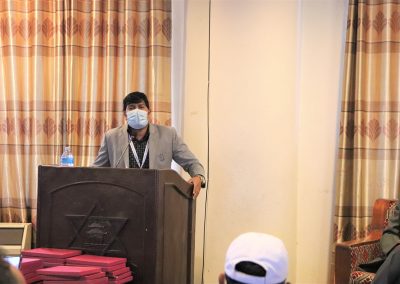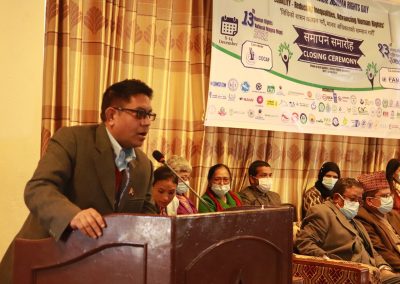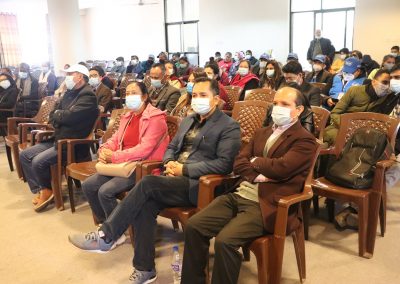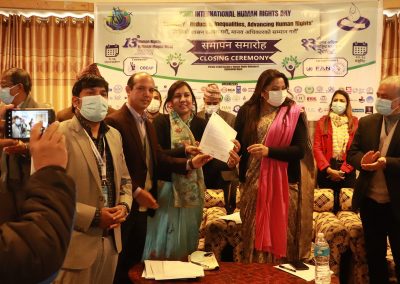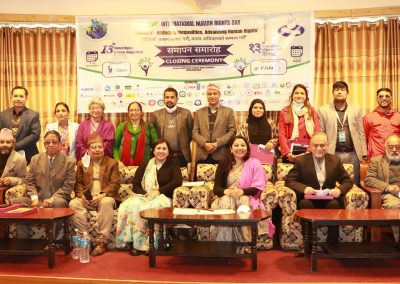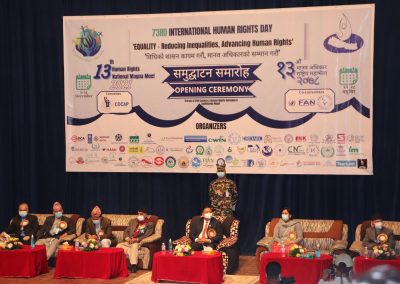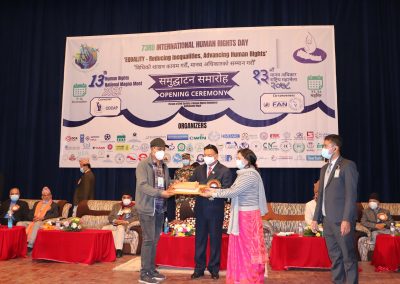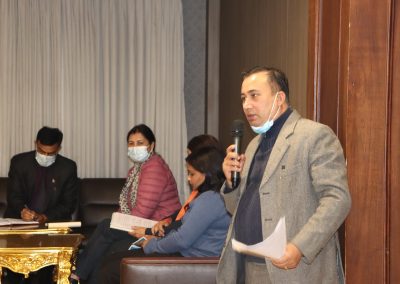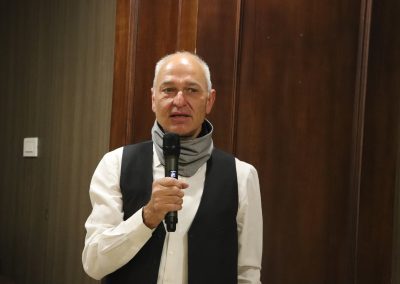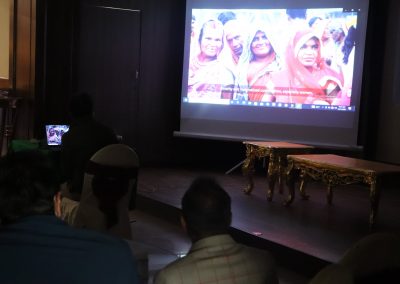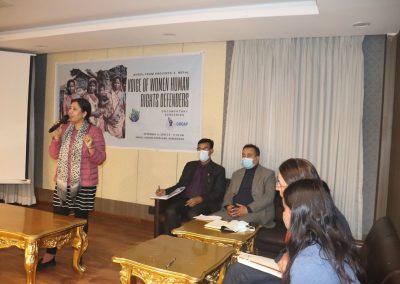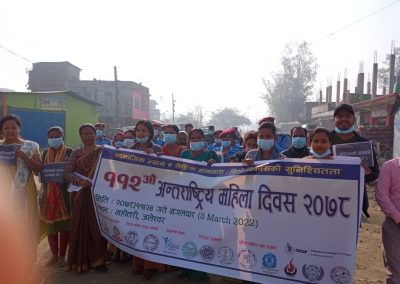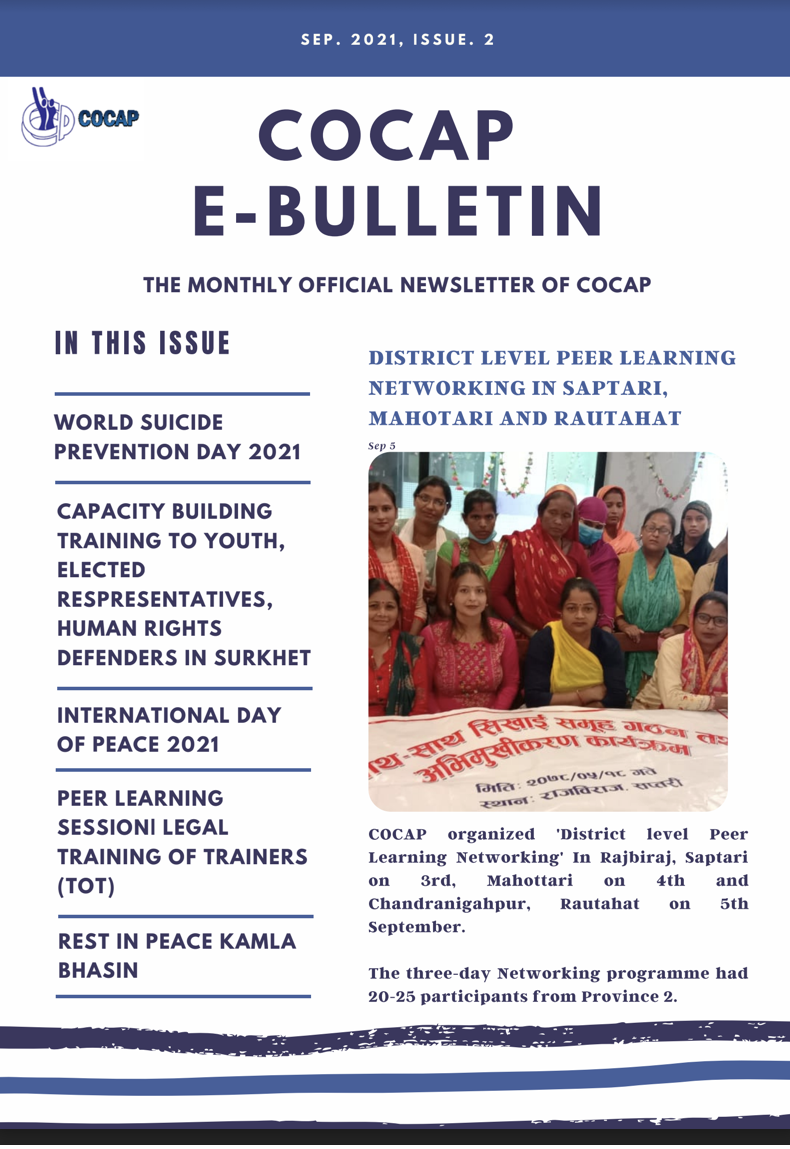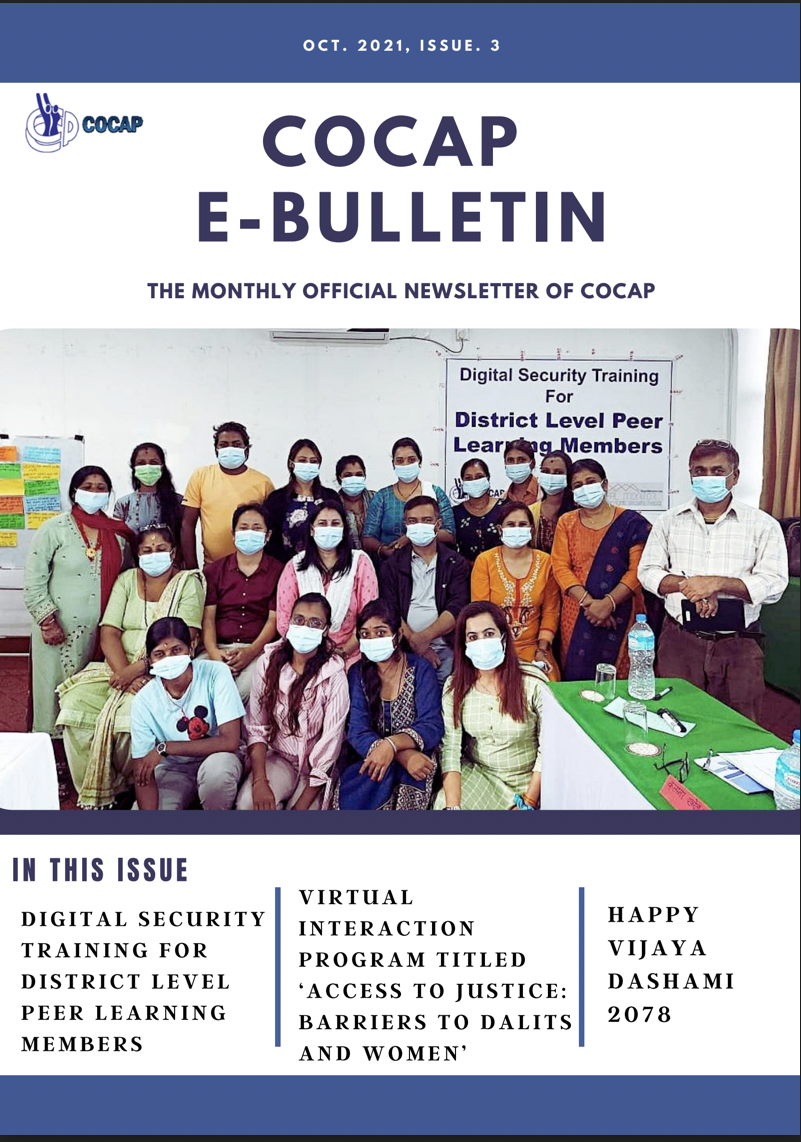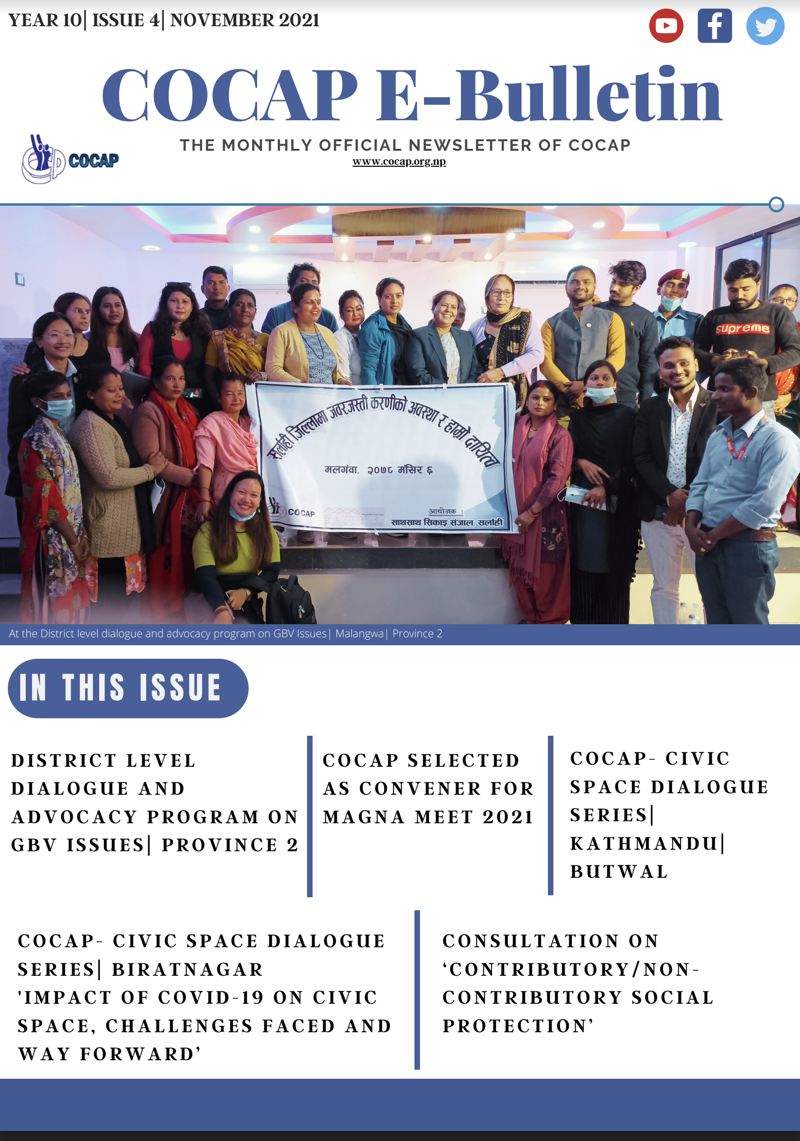Resources
Find all our pictures, publications and other resource materials here.
Gallery
Publications

Nepal Election 2022 – An overview of Electoral Process and Contestation
This report presents an overview of Nepal’s 2022 elections for local level, provincial and federal parliament with specific focus on the patterns of electoral contestations observed during different phases of elections. The report also provides a broad assessment of the overall electoral process, the outcome of the elections and its broader political implication.

Local Level Election 2022 – An overview of electoral contestation
This report presents an overview of the local elections – 2022 with specific focus on the patterns of electoral contestations observed during different phases of the election cycle. Nepal Monitor collected data on incidents of electoral contestations throughout the election cycle, from most widely available public sources including national and local online news portals, national dailies, COCAP’s focal persons and network in provinces.

Incidents Surrounding Covid-19 (May 1-15,2020)
The situation report/fact sheet from the Nepal Peace Monitoring Project (PMP) covers the incidents from May 1- 15, 2020 related to gender-based violence and incidents related to COVID-19. As per PMP’s data, the incidents of gender-based violence, black marketing, protest related to relief distribution, and clashes between police are our primary focus in this report.
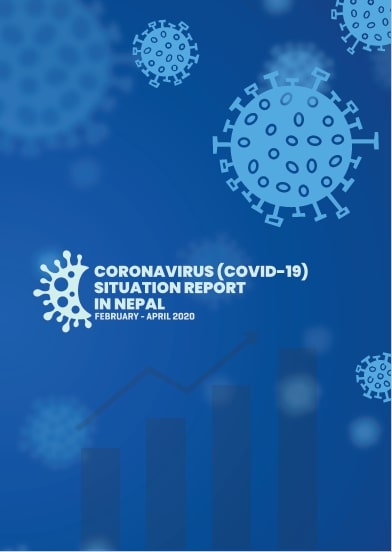
The situation report from the Nepal Peace Monitoring Project (PMP) covers the trends of the incidents since the beginning of 2020 and makes a comparative analysis of incidents before and after the lockdown. The goal of the report is to deliver an update and understanding of the incidents surrounding the pandemic of Coronavirus, to better respond to the situation and to promote peace. The numbers recorded in this report are based on the reports mapped by NepalMonitor.org.
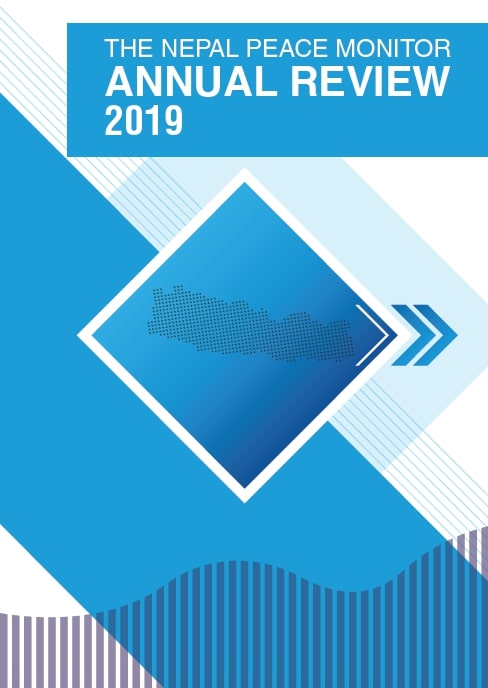
The Nepal Peace Monitor Annual Review 2019
The Annual Review 2019 presents data collected by the Nepal Peace Monitoring Project (PMP). It provides a comprehensive overview of incidents documented throughout 2019 and analyzes major trends to improve our understanding of and response to violence and conflict in Nepal. The PMP also continues to provide an instrument to measure progress against SDG Targets 16.1 (reduction of all forms of violence and related death rates) and 5.2 (elimination of violence against women) in Nepal.
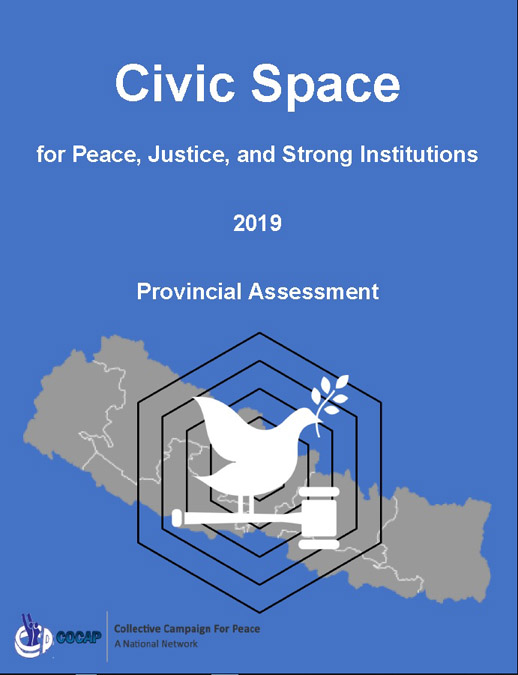
Provincial Civic Space Assessment
Civic space is crucial to achieve SDG 16. Yet fundamental freedoms have been threatened and restricted recently in Nepal. COCAP’s network has expressed increasing concern about shrinking space to promote SDG 16. Therefore, COCAP brought together its member organizations and youth volunteers to discuss how civic space is shrinking and shifting. On January 4, 2020, COCAP organized a provincial civic space assessment with 89 network members, including member organizations, youth volunteers and COCAP staff in Sauraha. The participants analyzed different dimensions of civic space at the province level. This analysis is intended to provide a solid basis for joint advocacy and partnerships to protect civic space for peace, justice, and strong institutions.

Civic Space for Peace, Justice, and Strong Institutions Workshop Report (2019)
Civic space is crucial to achieve SDG 16. Yet fundamental freedoms have been threatened and restricted recently in Nepal. COCAP’s network, including its member organizations and allies, have expressed increasing concern about the shrinking space that they navigate in. Amid this background, COCAP decided to bring together diverse members of civil society to build a common understanding of how space to promote SDG 16 is shrinking and shifting. For this purpose, COCAP initiated a joint civic space assessment on September 20, 2019 in Kathmandu. The assessment was conducted by 78 civil society members promoting SDG 16. The participants analyzed different dimensions of civic space to provide an in-depth analysis of current trends. This analysis is intended to provide a solid basis for joint advocacy and partnerships to protect civic space for peace, justice, and strong institutions.
The assessment workshop was part of the SPEAK! 2019 days of global action. SPEAK! is a global campaign, coordinated by CIVICUS, to provide a platform for people across the world to speak out on the issues that matter most to them. In 2019, civil society actors organized over 179 events in 55 countries. The campaign gave the participants in the assessment workshop the opportunity to amplify their voices on a global level through social media. The campaign demonstrated that shrinking civic space is a challenge for civil society around the world. By sharing our challenges and strategies with civil society across borders, COCAP hopes to contribute to a joint movement to reclaim civic space around the world.
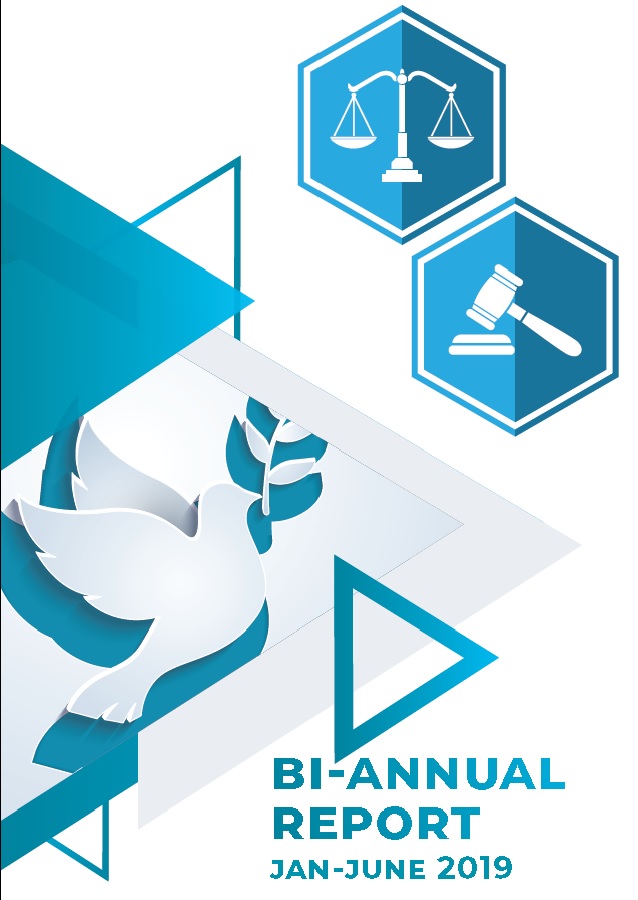
Bi-Annual Report January-June 2019
In the six months, from January to July 2019 the PMP recorded 1910 incidents (1312 of them violent and 598 non-violent incidents of protests, public contestation or threats). A total of 230 people were killed and 551 were injured in violent incidents. Gender based violence (GBV) continued to remain as one of the main causes of violent fatalities. In these six months, PMP recorded 674 incidents of GBV which include 151 incidents of domestic violence, 501 incidents of rape/sexual assault and 16 incidents of dowry related violence. GBV caused the death of 102 people and left 67 injured.
Issues related to governance, politics and economy caused the majority of non-violent contestation and public protests during these six months. As in the past, the involvement of cadres of the Biplov led Communist Party of Nepal (CPN-Chand) in violent activities and public protests is suspected. Early 2019 saw an escalation of Chand group activities, media attention on the group and state measures purportedly intended to address and curtail them, including mass arrests.
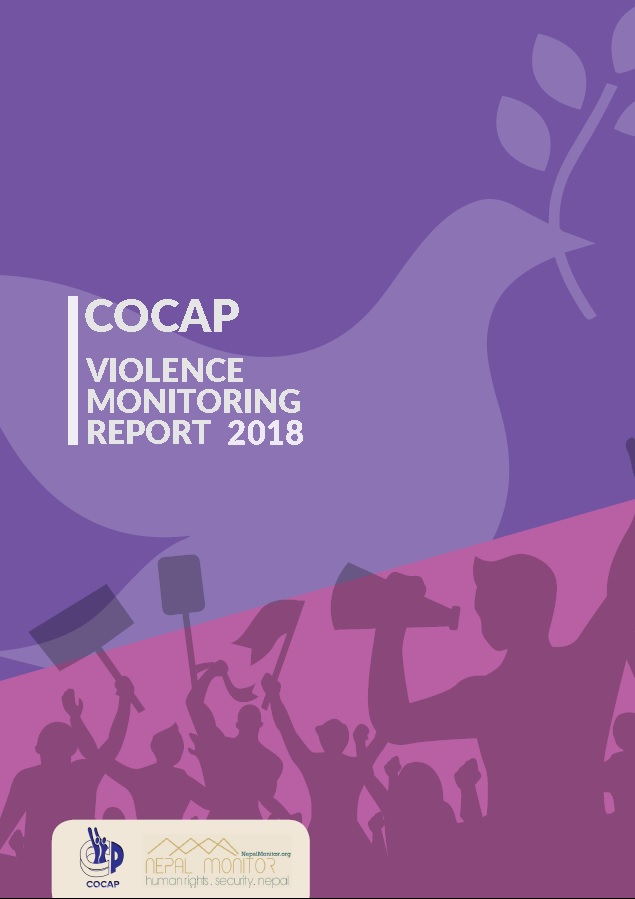
Violence Monitoring Report 2018
2018 was a year of significant changes and consolidations of power in Nepal but one that left significant question marks over the progress on key measures of justice and equality. Parliamentary elections in late 2017 led to a comfortable majority for the new ‘Left Alliance’ platform involving both the CPN-Maoist and CPN-UML parties. With a strong majority government in place under the leadership of Prime Minister KP Oli, expectations were raised going into 2018 for effective and firm governance and progress on key social and economic issues with national prosperity a key declared priority. The bond between the parties constituting the majority was concretized in May 2018 when the two parties officially merged to form the new Communist Party of Nepal.
A wave of legislative change occurred when the Nepalese parliament passed new civic and criminal codes which came into effect in August 2018. These replaced the existing General Code, which was 55 years old. To operationalize these codes, over 100 new laws were passed within the same parliamentary period. A great deal of criticism was levelled at the new codes, with specific concerns raised about the implications for freedom of expression and religion. This concern was raised in the context of a number of restrictions on protest that were implemented earlier in the year, in addition to individual cases of arrest of individuals, journalists and other civilians on grounds of ‘character assassination’ of prominent public figures.
This surge of legislative activity from a strong central government occurred alongside the ongoing reorganization of local governance following the commitment to federalisation enshrined in the 2015 constitution and furthered by the local elections of 2017. Despite six of the seven provinces having provincial administrations led by the same Nepali Communist Party, thus far coordination between the centre and the provinces has been inconsistent. As the central government seems generally committed to consolidating and strengthening central executive power, this inconsistency may reflect reservations about the implications of the decentralization of responsibility in key policy areas such as security.
Another unresolved issue affecting Nepal is that of transitional justice. There are numerous delays and blocks to an inclusive and just response to crimes committed during the civil conflict in Nepal. This situation continues to affect the relationship between civil society and government and between civil society actors taking different positions on the best path forward. Proposed changes to the status of the Truth and Reconciliation Commission (TRC) and Commission for Investigation on Enforced Disappeared Persons (CIEDP) will have significant implications for their work and ultimately for the situation of survivors of violence and families of disappeared people among other significantly marginalized groups.
At the tail end of June 2018, the government published a Draft Bill to amend the status of the Commission on Investigation of Disappeared Persons, Truth and Reconciliation. Amnesty International, the International Commission of Jurists and Trial International produced a joint statement of comments on the draft which highlighted concerns about a lack of meaningful consultation, ignoring of victims and lack of clear political will toward accountability, even that satisfies the existing rulings of the Nepali Supreme Court.
The case of Nirmala Panta, who was raped and murdered in July 2018, became an emblematic mobilizing point for critics of the existing national level mechanisms for justice and accountability, highlighting the struggles of those affected by violence and the challenges of a culture of impunity for powerful perpetrators of violence. The key recommendations of a National Human Rights Commission (NHRC) report (which at the time of writing has yet to be published in full) highlighted not only serious failings but direct misconduct in the police investigation into this case.

Trends in violence and contestation in Nepal – First Quarterly Report_2017
2018 was a year of significant changes and consolidations of power in Nepal but one that left significant question marks over the progress on key measures of justice and equality. Parliamentary elections in late 2017 led to a comfortable majority for the new ‘Left Alliance’ platform involving both the CPN-Maoist and CPN-UML parties. With a strong majority government in place under the leadership of Prime Minister KP Oli, expectations were raised going into 2018 for effective and firm governance and progress on key social and economic issues with national prosperity a key declared priority. The bond between the parties constituting the majority was concretized in May 2018 when the two parties officially merged to form the new Communist Party of Nepal.

RUPANTARAN 2068




